AI & Machine Learning
-
Facebook
-
Twitter
-
Linkedin
AI and advanced technology are transforming cancer care by enabling earlier detection, personalized treatment plans, and more accurate diagnostics through machine learning and data analysis. Innovations like robotic-assisted surgery, AI-driven drug discovery, and remote patient monitoring improve treatment precision and accessibility, enhancing overall patient outcomes.

The unseen team of medical detectives at Northwestern Medicine using advanced techniques for cancer detection, treatment
CHICAGO (WGN) — While machines can scan and surgeons cut, it takes a special kind of doctor to determine the presence of cancer in a patient.

Unique Stanford Medicine-designed AI predicts cancer prognoses, responses to treatment
A new artificial intelligence tool developed at Stanford Medicine combines data from medical images with text to predict cancer prognoses and treatment responses.

RNT Health Insights Receives Second US FDA Breakthrough Device Designation for Esophageal Cancer Detection Tool
Chandigarh [India], January 9: RNT Health Insights, a Chandigarh-based health-tech startup specializing in AI-assisted diagnostic solutions for the accurate detection of pathologies during endoscopic procedures, has been granted its second US FDA Breakthrough Device Designation for its Esophageal Cancer detection tool.

AI diagnoses endometrial cancer with near perfect accuracy
One of Australia’s most common gynecological cancers could be detected sooner and more accurately thanks to a specialized artificial intelligence (AI) model, new research shows.

This AI is creating cancer-killing molecules
The hunt for cancer-combatting antibodies normally relies upon human lab scientists combing through vast amounts of data. LabGenius’ automated AI robotic system has disrupted that process.
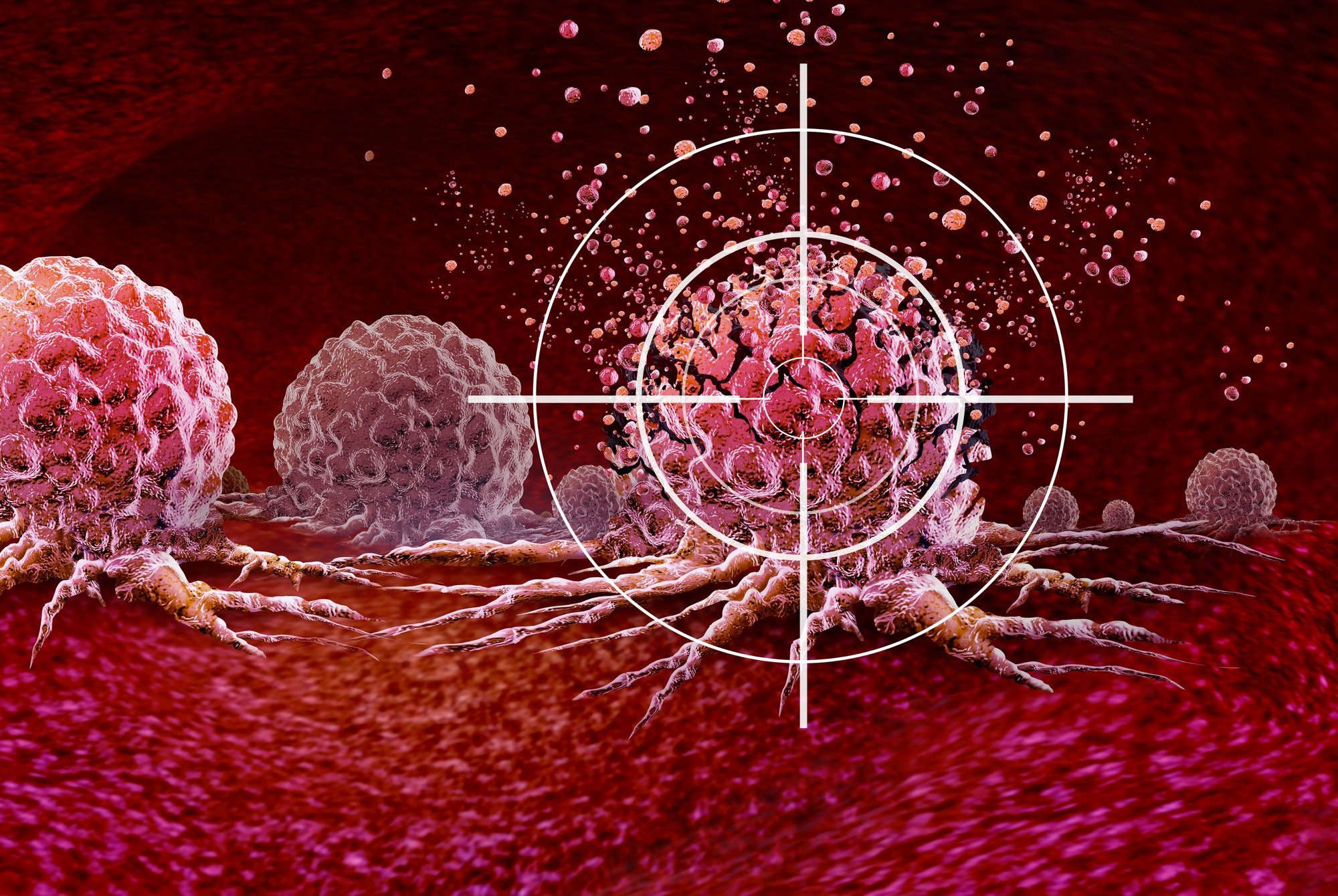
A new AI tool could slash cancer drug research waiting times in half
AI technology developed by a team at The Institute of Cancer Research may be able to streamline the years-long drug discovery process

AI in colonoscopy can improve cancer detection
New research led by a Norwegian team has found that using artificial intelligence (AI) during colonoscopy screenings can slightly improve the detection of small growths called polyps. These are important to find because they can turn into cancer over time.
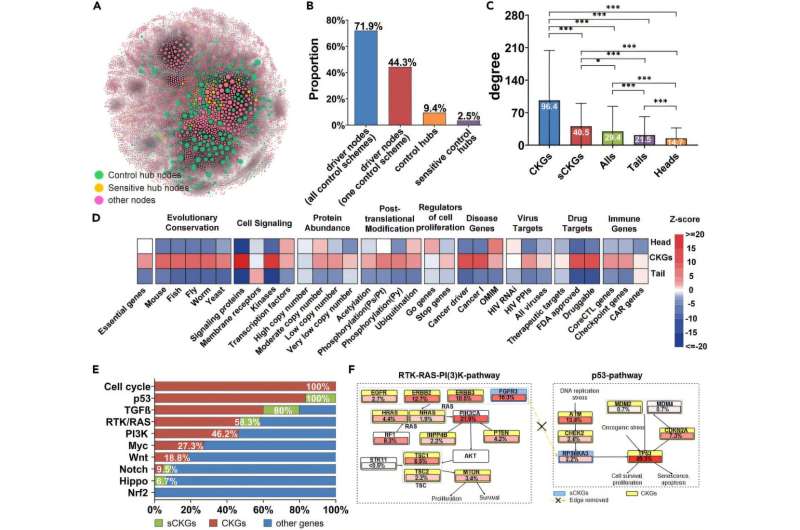
Cancer-keeper genes offer targets for disrupting cancer cell maintenance
By analyzing huge amounts of biological data, the use of machine learning accelerates the identification of critical control hubs that are sensitive to changes in the network structure of the total controllability network, thereby having potential as diagnostic biomarkers and therapeutic targets for disease and cancer treatment.

9 Foods A Cancer Dietitian Avoid #1 Increases The Risk Of 6 Different Cancers!
It’s no secret that your diet is one of the most crucial components of your health, playing a role in every area of your wellbeing. The foods you eat can even contribute to or reduce your risk of disease, including cancer; certain foods have been linked to an increased risk of cancer, while others can help support a healthy, disease-fighting body.

Nearly 100% of cancer identified by new AI, easily outperforming doctor
In what’s expected to soon be commonplace, artificial intelligence is being harnessed to pick up signs of cancer more accurately than the trained human eye. This latest AI model has a near 100% success rate and serves as a clear sign of things to come.

AI tool helps predict who will benefit from focal therapy for prostate cancer
A study led by UCLA investigators shows that artificial intelligence (AI) could play a key role in improving treatment outcomes for men with prostate cancer by helping physicians determine who is most likely to benefit from partial gland cryoablation, a minimally invasive procedure that treats localized prostate tumors.

New AI tool visualizes a cell’s ‘social network’ to help treat cancer
A first-of-its-kind artificial intelligence (AI)-based neural network can rapidly analyze and interpret millions of cells from a patient sample, predicting molecular changes in the tissue.
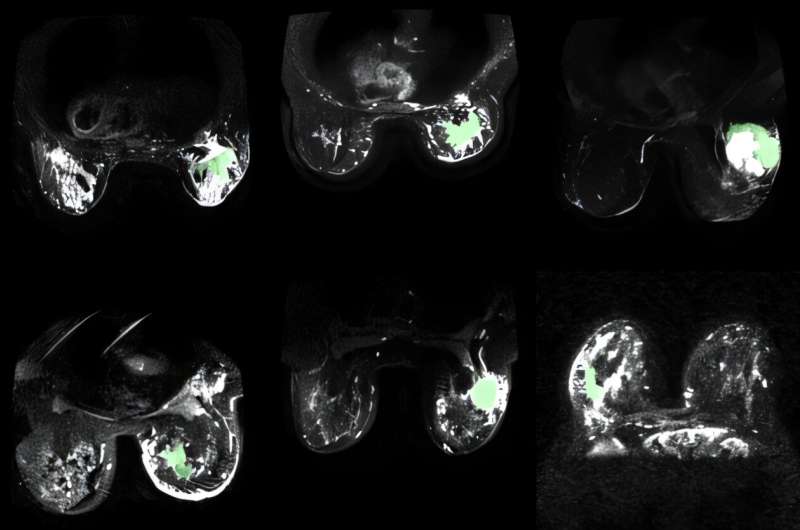
Cancerous breast tissue glows in new AI-enhanced MRI images
Imaging technology developed and refined at the University of Waterloo promises better detection and treatment of breast cancer by more accurately pinpointing cancerous tissue.

AI-driven blood analysis may spur cancer detection, Hong Kong prenatal test pioneer says
Affordable cancer screening may be available to Hong Kong residents within three years, as advances in artificial intelligence (AI) make the early detection of malignant tumours easier and faster, according to the creator of a pioneering prenatal test for Down syndrome.

Groundbreaking Trial Involving 700,000 Women Kicks Off After AI Predicts Breast Cancer Five Years Early
Thousands of women will participate in a study to see if AI could be used for early breast cancer detection. Around 700,000 women in the UK will take part in the AI breast cancer trial, according to the DHSC. Thirty testing sites will be involved in the study, each fitted with groundbreaking AI digital screening technology. Any woman who has already booked a routine breast cancer screening with NHS will be invited to participate in the study.
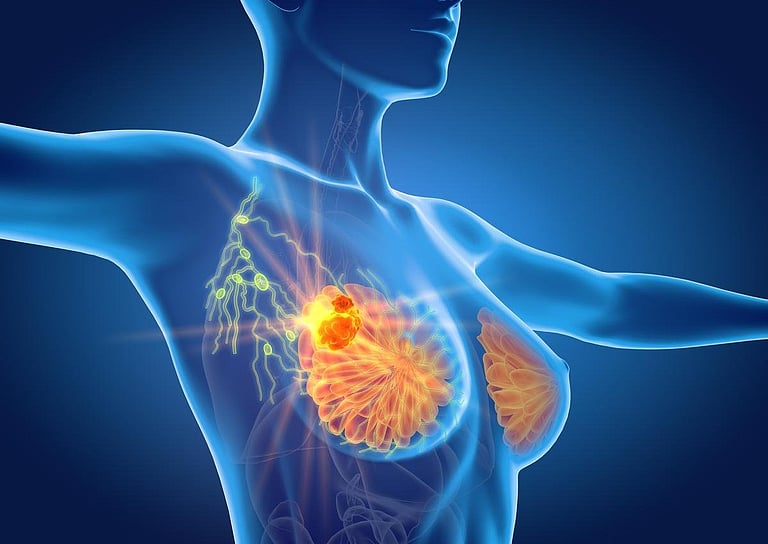
AI Contributes to Early Detection of Clinically Relevant Breast Cancer
THURSDAY, Feb. 13, 2025 (HealthDay News) — Artificial intelligence (AI) contributes to early detection of clinically relevant breast cancer, according to a study published online Feb. 3 in The Lancet Digital Health.

Efforts to improve cancer research must persist and intensify – opinion
The integration of new technologies and treatment paradigms into the country’s health system each year enhances patients’ quality of life and enables many to manage their illnesses more effectively.
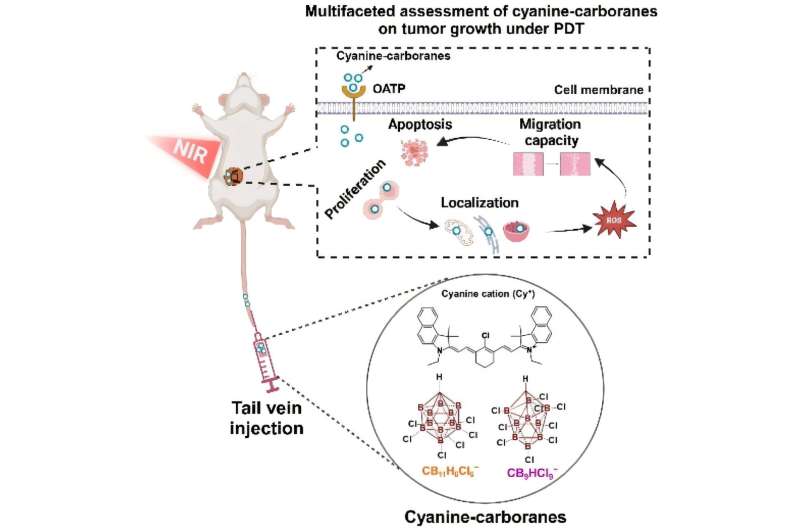
Breast cancer treatment advances with light-activated ‘smart bomb’
Scientists have developed new light-sensitive chemicals that can radically improve the treatment of aggressive cancers with minimal side effects. In mouse tests, the new therapy completely eradicated metastatic breast cancer tumors.
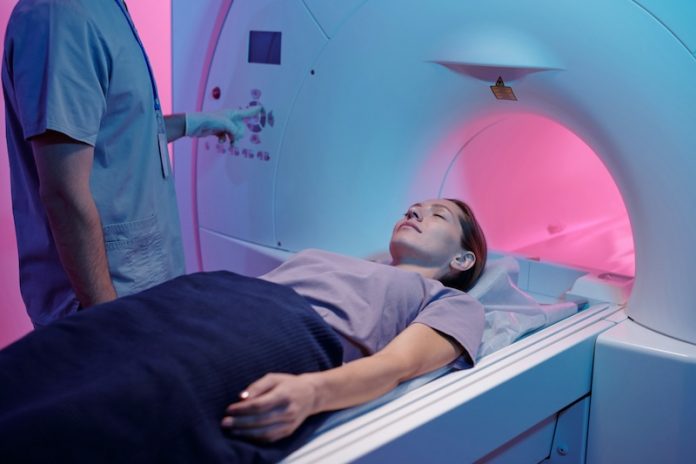
AI could detect cancer in abdomen early, study finds
Artificial intelligence (AI) is becoming an essential tool in medical imaging, helping radiologists analyze scans faster and more accurately. However, AI models need a massive amount of labeled data to work well, which means radiologists still spend a lot of time marking images manually.
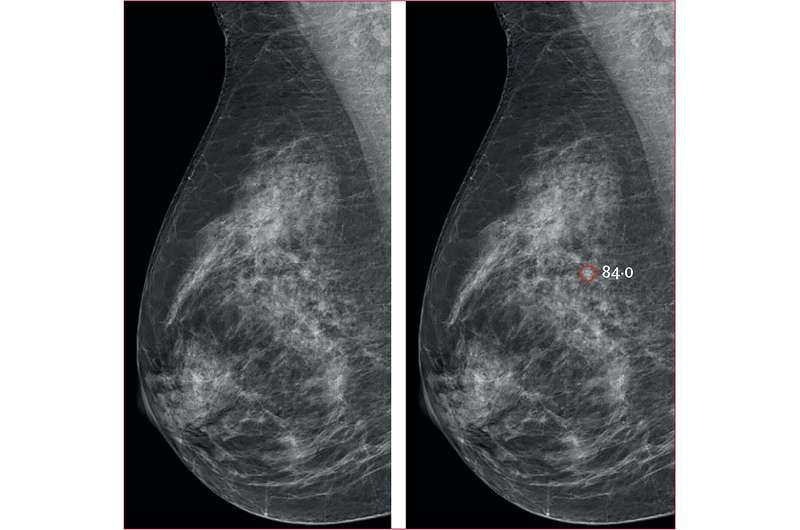
AI-supported breast cancer screening—new results suggest even higher accuracy
New research results now published from Lund University’s MASAI trial are even better than the initial findings from last year: AI-supported breast screening detected 29% more cases of cancer compared with traditional screening. More invasive cancers were also clearly detected at an early stage using AI. Now the final part of the research study will focus on breast cancer missed by screening.
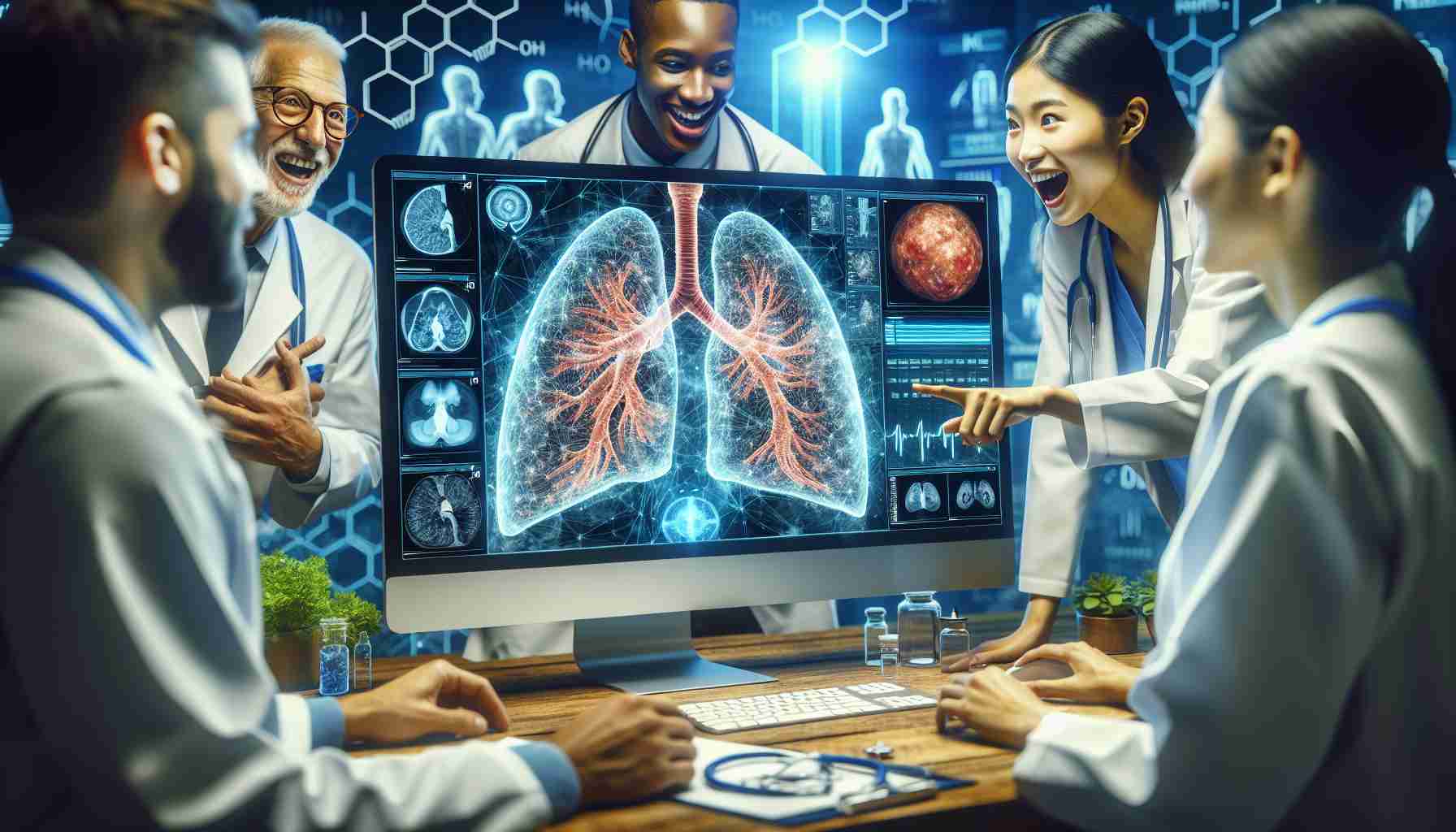
Game-Changing AI Unveils Stunning Advances in Lung Disease Detection – DSA
The AI model TD-CNNLSTM-LungNet achieves an exceptional accuracy rate of 96.51% in detecting lung diseases. Combines Convolutional Neural Networks (CNN) and Long Short-Term Memory (LSTM) technologies for superior diagnostics. Capable of accurately differentiating between conditions like pneumonia and COVID-19 using ultrasound images. Enhances radiologists’ decision-making with heat maps and detailed explanations, ensuring transparency. Future plans […]

Kidney Cancer: Revolutionary Changes in Treatment with New-Age Technology – News18
With continued advancements, early detection, and innovative treatments, we are moving closer to a future where kidney cancer is no longer a life-threatening disease but a manageable condition.

AI maps molecular interaction that could improve cancer research
A new study from Oregon Health & Science University has uncovered how small molecules within bacteria interact with proteins, revealing a network of molecular connections that could improve drug discovery and cancer research.
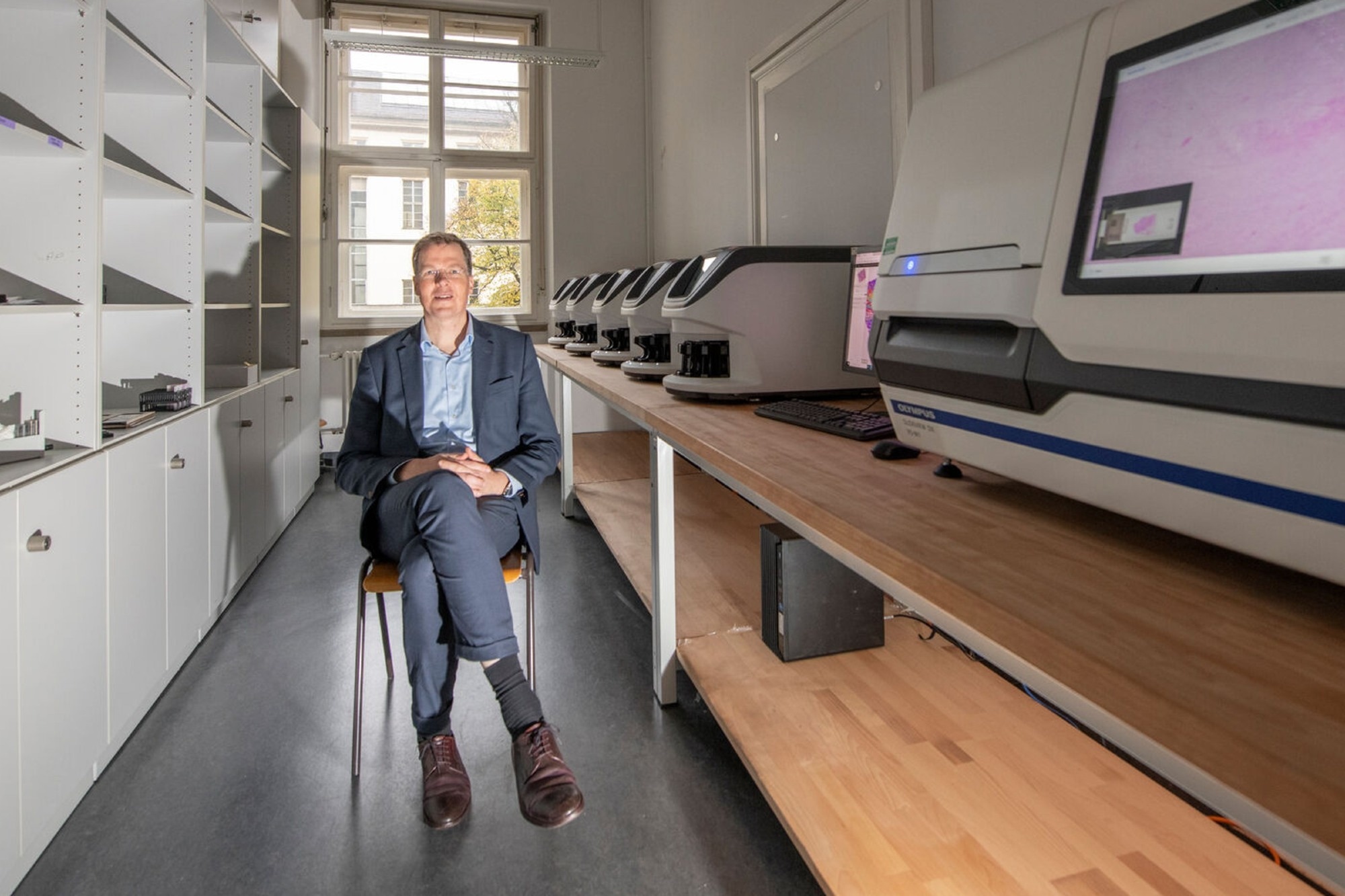
AI Tailors Cancer Treatment to Individual Patients
A novel AI tool from BIFOLD and partner institutions deciphers complex cancer interrelationships, enhancing personalized medicine and clinical decision-making.






